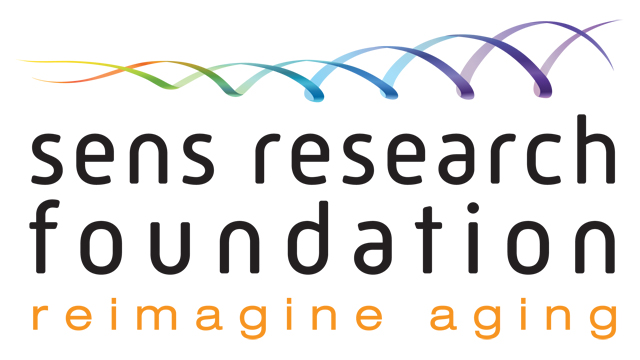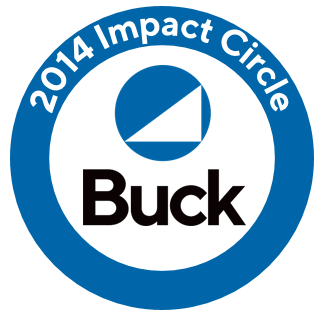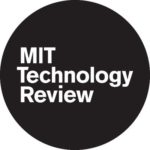CAMPISI LAB
Lab focus
Why is aging the largest risk for developing so many apparently disparate diseases, ranging from neurodegeneration to cancer? One answer to this question lies in the evolutionarily selected, stress-responsive state termed cellular senescence. Senescent cells cease proliferation, which prevents early life cancer. They also secrete numerous molecules that promote tissue repair and regeneration. However, because senescent cells gradually accumulate with age, they eventually cause tissue degeneration, chronic inflammation, and many age-related diseases, including, ironically, late life cancer.
The Campisi lab studies the regulation and characteristics of cell states, with an emphasis on cellular senescence. We use simple and complex human and mouse cell cultures, intact human and mouse tissues, and mouse models to understand the molecular pathways that drive cellular senescence and other cell states. We also use genetic and pharmacological manipulations to understand how cell states cause both the degenerative diseases of aging as well as cancer and to design strategies to modulate or ameliorate their effects.
Why it matters
Aging is a complex, multisystem process that exacts an enormous emotional and economic toll on societies. Understanding and manipulating this process is the next big challenge in biomedical research. It is now clear that many age-related changes and pathologies are caused by cellular responses to endogenous and environmental stimuli. Understanding these responses is essential to developing safe interventions that can extend the years of healthy life in human populations.
Modern medicine has enabled us to extend lifespan - often at the expense of healthspan. My lab is focused on disrupting one of the major drivers of aging. Our goal is to enable more healthy years of life.
Judy Campisi, PhD
CENTER DETAILS
Dr. Judith Campisi
1948-2024
Dr. Campisi received a PhD in biochemistry from the State University of New York at Stony Brook and completed her postdoctoral training in cell cycle regulation at the Dana-Farber Cancer Institute and Harvard Medical School. As an assistant and associate professor at the Boston University Medical School, she studied the role of cellular senescence in suppressing cancer and soon became convinced that senescent cells also contributed to aging. She joined the Lawrence Berkeley National Laboratory as a senior scientist in 1991. In 2002, she started a second laboratory at the Buck Institute. At both institutions, Dr. Campisi established a broad program to understand the relationship between aging and age-related disease, with an emphasis on the interface between cancer and aging.
Dr. Campisi is a member of the National Academy of Sciences and a fellow of the American Association for the Advancement of Science.
She has received numerous awards for her research, including two MERIT awards from the National Institute on Aging and awards from the AlliedSignal Corporation, Gerontological Society of America, and American Federation for Aging Research. She is a recipient of the Longevity prize from the IPSEN Foundation, the Bennett Cohen award from the University of Michigan, and the Schober award from Halle University, and she is the first recipient of the international Olav Thon Foundation prize in Natural Sciences and Medicine. Dr. Campisi currently serves on advisory committees for the Alliance for Aging Research, Progeria Research Foundation, and NIA’s Intervention Testing Program. She is also an editorial board member for more than a dozen peer-reviewed journals. Dr. Campisi is a scientific founder of Unity Biotechnology, a California-based company focused on developing therapies for age-related pathologies. She has served on the scientific advisory boards of the Geron Corporation, Sierra BioScience, and Sangamo Biosciences.
-
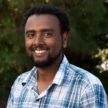 Tesfahun Admasu Visiting Scientist
Tesfahun Admasu Visiting ScientistDr. Admasu is a research fellow at SENS Research Foundation. He is currently working on characterizing primary and secondary senescent cells and identification of novel senotherapeutics. Dr. Admasu received his PhD in biochemistry from National University of Singapore, Singapore. In his PhD, he works on identification of drug synergy for lifespan extension in C. elegans.
tesfahun.admasu@sens.org
-
 Rachel Butterfield Research Associate
Rachel Butterfield Research AssociateRachel is a biology student at Santa Rosa Junior College and is passionate about laboratory research. In 2023, she interned at the National Heart, Lung, and Blood Institute in Bethesda, MD, where she investigated the effects of Myosin 10 on dendritic cells. This experience deepened her interest in studying cell biology. Rachel is thrilled to contribute to the field of aging research as a research associate and lab manager in the Campisi Lab.
RButterfield@buckinstitute.org
-
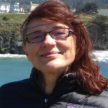 Karen Davis , MD Visiting scientist
Karen Davis , MD Visiting scientistDr. Davis had a career as an anesthesiologist and general medicine practitioner in the community. At present, she is interested in mechanisms of inflammation and aging. She has a particular interest in the degenerative disease sporadic inclusion body myositis as well as sarcopenia associated with aging. Karen Davis is an Independent Visiting Scientist
KArendavis47@gmail.com
-
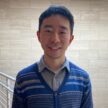 Hideto Deguchi Research Scholar
Hideto Deguchi Research ScholarDr. Deguchi completed medical school and received a PhD in medicine from Kyoto Prefectural University of Medicine, Japan. During his PhD studies, he studied the relationship between intracellular pH and mitochondrial homeostasis in corneal endothelial cells. He specializes in ophthalmology, particularly uveitis, and his research focus is cellular and immune senescence in the eye.
HDeguchi@buckinstitute.org
-
 Pierre-Yves Desprez, PhD Senior Scientist and Professor in Residence
Pierre-Yves Desprez, PhD Senior Scientist and Professor in ResidenceDr. Pierre-Yves Desprez first joined the Berkeley National Laboratory after completion of his doctoral thesis at the University of Lyon in France. Dr. Desprez has been a Principal Investigator at the California Pacific Medical Center Research Institute in San Francisco since 1996. The Desprez laboratory is focused on helix-loop-helix transcriptional regulators, their role in regulating cancer progression, as well as on the effects of non-psychotropic cannabinoid compounds to control their expression. As part as the CPMC Precision Medicine Project, Dr. Desprez leads DNA/RNA sequencing and molecular profiling efforts, and, at the Buck Institute, after several years as a scientific consultant, he stepped in to keep the Campisi laboratory running after Dr. Judith Campisi sadly passed away on January 19th 2024.
-
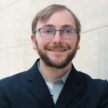 Tyler Hilsabeck, PhD Postdoctoral Researcher
Tyler Hilsabeck, PhD Postdoctoral ResearcherDr. Tyler Hilsabeck is a Postdoctoral Researcher in Dr. Judy Campisi’s lab. He holds a bachelor's degree in physics from Texas Tech University and a master's degree in biology from the University of Texas at San Antonio. His PhD studies in both the Kapahi and Brem labs focused on using computational and biological tools to understand the relationships between metabolites, genes, and aging-related phenotypes in Drosophila melanogaster. Dr. Hilsabeck's current research involves understanding the connection between aging, DNA damage, mortality, and risk for developing Alzheimer’s Disease. His interests include understanding the mechanisms that underly aging-related phenotypes, individual variation in lifespan and healthspan, and using computational methods to facilitate these endeavors.
THilsabeck@buckinstitute.org
-
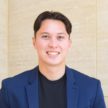 Brendan Hughes PhD candidate, USC-Buck Biology of Aging Program
Brendan Hughes PhD candidate, USC-Buck Biology of Aging ProgramBrendan received his B.S. in biological sciences from Cal Poly, San Luis Obispo in 2020. After an internship at Rubedo Life Sciences, Brendan discovered his passion for the biology of aging and pursued a PhD in this field in the Campisi lab in 2022. Brendan proceeded to candidacy in 2024 and will finish his thesis studying DNA damage response in the aging brain and heterogeneity of senescence responses within the human body.
BHughes@buckinstitute.org
-
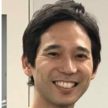 Koji Kitazawa, MD, PhD Visiting Scientist
Koji Kitazawa, MD, PhD Visiting ScientistDr. Kitazawa completed medical school and received a PhD in medicine from Kyoto Prefectural University of Medicine, Japan. During his PhD student, he studied the cellular reprogramming of corneal epithelial cells at Center for iPS Research and Application (CiRA), Kyoto University. He specializes in ophthalmology, and his research focus is cellular senescence in the eye, and he is currently investigating the way to keep more healthy years of the eye longer in the Campisi lab. Dr. Kitazawa is visiting from Kyoto University
kkitazaw@koto.kpu-m.ac.jp
-
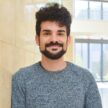 Francesco Neri, PhD Postdoctoral Researcher
Francesco Neri, PhD Postdoctoral ResearcherFrancesco received his B.S. in biotechnology at the University of Bologna (Italy) in 2017 and then completed his M.S. in pharmaceutical biotechnology at the University of Bologna (Italy) in 2019. He joined the Campisi lab in 2019 to study cellular senescence, and he obtained his PhD in Biology of Aging in 2024.
FNeri@buckinstitute.org
-
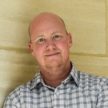 Corey Webster, PhD Postdoctoral Researcher
Corey Webster, PhD Postdoctoral ResearcherCorey is originally from Martinez, California. He completed his BS in Neuroscience at UCLA in 2002. After graduating, he worked as an RA at Stanford, UCSF and Genentech, and obtained a MS from SFSU in 2008. He began his PhD in 2013 in MCB at UC Berkeley where he studied the role of a Trp channel (TrpM3) as the receptor for the steroid hormone, pregnenolone sulfate, during circuit assembly of the retina under the mentorship of Marla Feller. Corey earned his PhD in 2019 and then joined the Campisi lab to better understand the role of specific types of senescent cells in the context of neurodegeneration. When not in the lab, Corey can be spotted on the local trails.
CWebster@buckinstitute.org
Thawing and Cultivation of Human Fibroblasts
Detecting Senescence-Associated B-Galactosidase (SA-Bgal) Activity
(or…How to turn your old cells blue)
Selected Publications
-
Wiley CD, Sharma R, Davis SS, Lopez-Dominguez JA, Mitchell KP, Wiley S, Alimirah F, Kim DE, Payne T, Rosko A, Aimontche E, Deshpande SM, Neri F, Kuehnemann C, Demaria M, Ramanathan A, Campisi J. 2021. Oxylipin biosynthesis reinforces cellular senescence and allows detection of senolysis. Cell Metab 33:1124-1136.
-
Dimri, G., Lee, X., Basile, G., Acosta, M., Scott, G., Roskelley, C., Medrano, E. E., Linskens ,M., Rubelj, I., Pereira-Smith, O., Peacocke, M., Campisi, J. (1195 Sep 26). A novel biomarker identifies senescent human cells in culture and aging skin in vivo. Proc Natl Acad Sci USA, 92(20), 9363–67.
- Krtolica, A., Parrinello, S., Lockett, S., Desprez, P., Campisi, J. (2001 Oct 9). Senescent fibroblasts promote epithelial cell growth and tumorigenesis: A link between cancer and aging. Proc Natl Acad Sci USA, 98(21), 12072–77.
- Coppe, J. P., Patil, C. K., Rodier, F., Sun, Y., Munoz, D. P., Goldstein, J., Nelson, P. S., Desprez, P. Y., Campisi, J. (2008). Senescence-associated secretory phenotypes reveal cell non-autonomous functions of oncogenic RAS and the p53 tumor suppressor. PLoS Biol, 6(12), 2853–68.
- Rodier, F., Coppe, J. P., Patil, C. K., Hoeijmakers, W. A. M., Munoz, D. P., Raza, S. R., Freund, A., Campeau, E., Davalos, A. R., Campisi, J. (2009 Aug). Persistent DNA damage signaling triggers senescence-associated inflammatory cytokine secretion. Nature Cell Biol, 11(8), 973–79.
- Demaria, M., Ohtani, N., Youssef, S. A., Rodier, F., Toussaint, W., Mitchell, J. R., Laberge, R. M., Vijg, J., van Steeg, H., Dolle, M. E., Hoeijmakers, J. H., de Bruin, A., Hara, E., Campisi, J. (2014 Dec 22). An essential role for senescent cells in optimal wound healing through secretion of PDGF-AA. Dev Cell, 31(6), 722–33.
- Laberge, R. M., Sun, Y., Orjalo, A. V., Patil, P. K., Freund, A., Zhou L., Curran, S. C., Davalos, A. R., Wilson-Edell, K. A., Liu, S., Limbad, C., Demaria, M., Li P., Hubbard, G. B., Ikeno, Y., Javors, M., Desprez, P. Y., Benz, C. C., Kapahi, P., Nelson, P. S., Campisi, J. (2015 Aug). mTOR regulates the tumor-promoting senescence secretory phenotype by promoting IL-1 translation. Nature Cell Biol, 17(8), 1049–61.
- Velarde, M. C., Demaria, M., Melov, S., Campisi, J. (2015 Aug 18). Pleiotropic age-dependent effects of mitochondrial dysfunction on epidermal stem cells. Proc Natl Acad Sci USA, 112(33), 10407–12.
- Wiley, C. D., Velarde, M. C., Lecot, P., Liu, S., Sarnoski, E. A., Shirakawa, K., Lim, H., Davis, S., Ramanathan, A., Gerencser, A. A., Verdin, E., Campisi, J. (2015 Dec 10). Mitochondrial dysfunction induces senescence with a distinct secretory phenotype. Cell Metab, 23(2), 303–14.
- Demaria, M., O’Leary,, M. N., Chang J., Shao, L., Liu, S., Alimirah, F., Koenig, K., Le, C., Mitin, N., Deal, A. M., Alston, S., Academia, E. C., Kilmarx, S., Valdovinos, A., Wang, B., de Bruin, A., Kennedy, B. K., Melov, S., Zhou, D., Sharpless, N. E., Muss, H., Campisi, J. (2017 Feb). Cellular senescence promotes adverse effects of chemotherapy and cancer relapse. Cancer Discov, 7(2), 165–176.
IN THE NEWS






